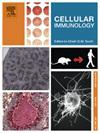巨噬细胞极化参与叶酸诱导急性肾损伤后的修复
IF 2.9
4区 医学
Q2 CELL BIOLOGY
引用次数: 0
摘要
急性肾损伤(AKI)仍然是一项重大的公共卫生挑战,对人类健康构成严重威胁。越来越多的证据表明,肾细胞在AKI后发生了显著的代谢改变,炎症反应在损伤和修复阶段都持续存在。我们之前的研究表明,AKI后有氧糖酵解的增加导致代谢副产物如乳酸的分泌增加,乳酸在组织修复中起着关键作用。然而,代谢重编程和炎症反应之间的关系以及潜在的机制仍然知之甚少。本研究旨在阐明糖酵解副产物乳酸对AKI后巨噬细胞活化和表型分化的调节作用。我们观察到叶酸诱导AKI后M1/M2巨噬细胞表达增加,炎症细胞因子分泌升高。免疫荧光染色显示巨噬细胞与α-SMA共定位。损伤后乳酸水平的改变导致巨噬细胞表达减少,成纤维细胞活化和增殖减少,最终损害肾组织修复。这些发现表明,将乳酸作为巨噬细胞表型分化的关键调节因子,可能为AKI修复的治疗策略提供理论和临床基础。本文章由计算机程序翻译,如有差异,请以英文原文为准。
The polarization of macrophages participates in the repair after folic acid-induced acute kidney injury
Acute kidney injury (AKI) remains a major public health challenge, posing serious threats to human health. Increasing evidence indicates that renal cells undergo significant metabolic alterations following AKI, with inflammatory responses persisting throughout both injury and repair phases. Our previous research has demonstrated that heightened aerobic glycolysis after AKI leads to increased secretion of metabolic byproducts such as lactate, which plays a critical role in tissue repair. However, the relationship between metabolic reprogramming and inflammatory responses, as well as the underlying mechanisms, remain poorly understood. This study aims to clarify the regulatory effects of the glycolytic byproduct lactate on macrophage activation and phenotypic differentiation following AKI. We observed increased expression of M1/M2 macrophages and elevated secretion of inflammatory cytokines after folic acid-induced AKI. Immunofluorescence staining showed co-localization of macrophages with α-SMA. Manipulating lactate levels post-injury led to a decrease in macrophage expression and a reduction in fibroblast activation and proliferation, ultimately impairing renal tissue repair. These findings suggest that targeting lactate as a key regulator of macrophage phenotype differentiation may provide a theoretical and clinical foundation for therapeutic strategies in AKI repair.
求助全文
通过发布文献求助,成功后即可免费获取论文全文。
去求助
来源期刊

Cellular immunology
生物-免疫学
CiteScore
8.20
自引率
2.30%
发文量
102
审稿时长
30 days
期刊介绍:
Cellular Immunology publishes original investigations concerned with the immunological activities of cells in experimental or clinical situations. The scope of the journal encompasses the broad area of in vitro and in vivo studies of cellular immune responses. Purely clinical descriptive studies are not considered.
Research Areas include:
• Antigen receptor sites
• Autoimmunity
• Delayed-type hypersensitivity or cellular immunity
• Immunologic deficiency states and their reconstitution
• Immunologic surveillance and tumor immunity
• Immunomodulation
• Immunotherapy
• Lymphokines and cytokines
• Nonantibody immunity
• Parasite immunology
• Resistance to intracellular microbial and viral infection
• Thymus and lymphocyte immunobiology
• Transplantation immunology
• Tumor immunity.
 求助内容:
求助内容: 应助结果提醒方式:
应助结果提醒方式:


